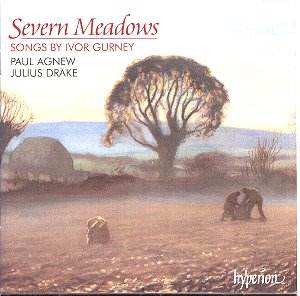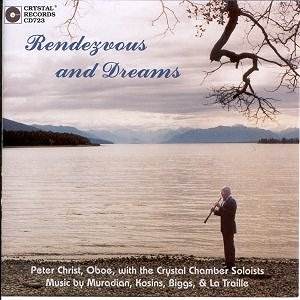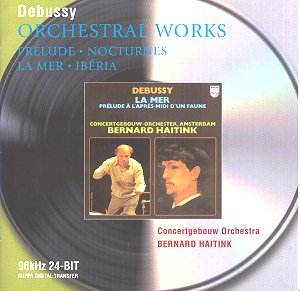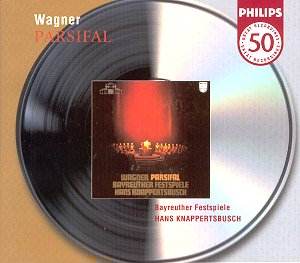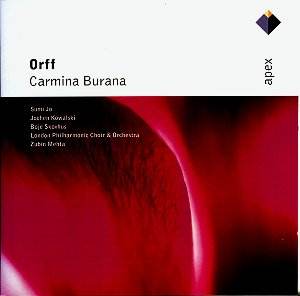 Composer: Carl Orff
Composer: Carl Orff
Works: Carmina Burana
Performers: Bo Skovhus (baritone), Jochen Kowalski (alto), Sumi Jo (soprano), London Philharmonic Chorus and Orchestra, Southend Boys’ Choir
Recording: 1993, The Maltings, Snape
Label: Apex
Carl Orff’s Carmina Burana stands as a watershed moment in 20th-century choral literature, born from the composer’s serendipitous discovery of a collection of medieval poems that speak to the human experience with a raw, visceral energy. This work, first unveiled in 1937, draws upon the themes of fate, love, and the pleasures of life, encapsulated in the iconic opening chorus, “O Fortuna.” Orff’s departure from his earlier works signifies a profound transformation, as he sought a directness, a static quality, that resonates throughout the score. This recording, conducted by Zubin Mehta, captures both the vigor and the theatricality that have come to define Carmina Burana’s place in the classical canon.
Mehta’s interpretation is marked by a keen understanding of the work’s dramatic underpinnings. He navigates the vast orchestral textures with both sensitivity and authority, ensuring that each climactic moment is met with the appropriate weight. The exhilarating opening, driven by thunderous timpani and an exhilarating tam-tam, showcases the engineering prowess of this Apex release. The recording reveals a remarkable clarity, allowing the intricate layers of percussion to emerge vividly, a feat that not all recordings achieve. This sonic distinction enhances the performance, pulling the listener into Orff’s vividly painted world where the forces of nature and human emotion collide.
The soloists form a compelling trio, each bringing unique strengths to their roles. Sumi Jo shines particularly bright, her soprano imbued with a crystalline clarity that brings a captivating allure to the love-themed movements. In “Ave formosissima,” her voice soars with an ethereal quality, effectively capturing the essence of beauty that Orff conjures through his text. Bo Skovhus, while grappling with the demanding baritone lines, delivers with commendable conviction, though the extremes of his range occasionally reveal the challenges embedded in the role. Jochen Kowalski’s portrayal of the roasting swan is a delightful highlight, though one wonders about the missed opportunity for a tenor to explore the role in falsetto, as Orff originally intended. This interpretative choice could have lent an additional layer of whimsy to the performance.
The choral forces, comprising the London Philharmonic Chorus alongside the Southend Boys’ Choir, contribute significantly to the overall impact. Their performance in “Tempus est iocundum” is particularly exhilarating, bursting with youthful energy and commitment. The blending of these diverse choral forces enhances the texture of the work, allowing the contrasting timbres to enrich the harmonic landscape. Mehta’s pacing, while occasionally indulgent in slower sections, allows for moments of reflection that deepen the emotional resonance of the score, though a tighter approach might have heightened the sense of urgency in certain passages.
This recording represents a substantial addition to the catalogue of Carmina Burana, standing alongside other notable interpretations such as those led by Karl Österreicher and Herbert von Karajan. The engineering triumphs of this release, combined with the robust performances of both the orchestra and chorus, create a listening experience that is both immersive and exhilarating. Mehta’s ability to harness the raw power of Orff’s music, coupled with the clear and vibrant sound quality, positions this interpretation as a compelling choice for both seasoned enthusiasts and newcomers to this iconic work.
